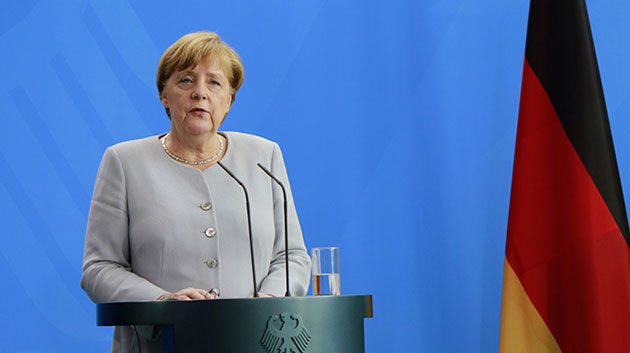The Worsening Refugee Crisis in Germany
What direction should Germany pursue and what contribution can Japan make?
Main points in this article:
- German Chancellor Angela Merkel talked with Turkish President Erdogan to discuss the immigration problems.
- The Germans have a deep sense of guilt about the “Holocaust.”
- It is essential for Germany to determine to realize prosperity.
German Chancellor Angela Merkel met with Turkish President Recep Tayyip Erdogan in Ankara, Turkey, on February 2nd, urging him to continue to observe the refugee agreement between EU and Turkey.
Most of the refugees and immigrants from the Middle East land on Greek islands via Turkey and then make their way to European countries. In March of 2016, EU signed a cooperation agreement with Turkey to limit refugee flows to Europe. This EU-Turkey deal has brought a considerable reduction in the number of illegal immigrants entering Greece.
However, Merkel believes that Germany should accept refugees and immigrants. In fact, the country had taken in more than 1 million asylum seekers and immigrants from Syria and other countries since 2015.
Merkel sharply criticized U.S. President Donald Trump for issuing the travel ban on people from seven Muslim-majority countries, claiming that the international community should take in refugees.
What Does Chancellor Merkel Feel Guilty about?
Germany is now facing the growing anti-refugee sentiment. Anti-refugee protests are often held and the right-wing, anti-immigrant political party, the Alternative für Deutschland (AfD) is drawing increasing support from the public.
Why does Merkel so adhere to the open-door migration policy? Merkel was trained as a physicist in former East Germany under Soviet control. She is currently the leader of the liberal-conservative Christian Democratic Union of Germany (CDU), but it is said that she is leftish enough to be able to be a leader of the left-center Social Democratic Party of Germany (SPD).
The reasons why she is inclined toward leftist thinking may be that Germany has been plagued by the guilt of producing Hitler and that she grew up in East Germany under Soviet rule. It may be that she is committed to accepting refugees as atonement for sins that the country committed in the past.
Problems Facing Modern Germany and the Direction It Should Take
Yuta Okawa, Managing Director of the CEO’s Office of Happy Science, gave a lecture titled “Introduction to Modern German Politics” on February 1st. Regarding Germany’s pro-refugee stance, he says, “The Germans still remember the ‘Holocaust,’ which discourages them to limit the entry of refugees to the country as President Trump does.”
On German politics, he also says, “Germany remains the status quo that makes us wonder what the country wants to do. A reactive approach has long been their political style, and it holds true for Japan. I think that the two countries are drifting about aimlessly without clearly defined national goals and firm conviction.”
He goes on to say, “Germany has produced a number of great figures. After the emergence of Hitler, people in Germany lost their confidence, thinking that their country was the country of darkness, but this is mainly due to the propaganda activities by former Soviet Union and Anglo-Saxon nations like Britain and the U.S.”
It is high time Germany broke free of the “spell of Hitler” and aimed to realize further prosperity. It is only when the country prospers and enhances its national strength that it will become possible for it to take in refugees. Germany is blessed with intelligent and hard working people. They must make their country prosper again without relying on China and then bring prosperity to other European countries-this is the course German should take.
What Can Japan Do to Deal with Refugee Crisis?
Japan granted refugee status to just 27 people in 2015, far fewer than European countries. It is embarrassing for a developed country. It is inevitable that Japan will have to fulfill its responsibility as an advanced country to accept a certain percentage of refugees in the future.
The most important thing is, however, not to create circumstances that make people refugees. What causes people to become refugees is often religious confrontation between Christianity and Islam and sectarian conflict among Muslims. So Japan should make its own contribution by serving as a mediator between countries that are likely to start a war and showing the way to create a country of the future that will not produce refugees anymore.



















